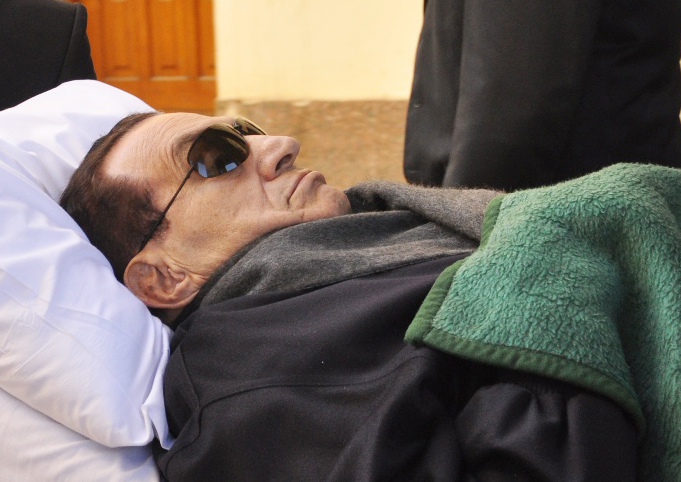CAIRO – An Egyptian appeals court Sunday overturned Hosni Mubarak’s life sentence and ordered a retrial of the ousted leader in the killing of hundreds of protesters, a ruling likely to further unsettle a nation still reeling from political turmoil and complicate the struggle of his Islamist successor to assert his authority.
The court’s decision put the spotlight back on the highly divisive issue of justice for Mubarak and his top security officers, who were also ordered retried, two years after the revolution that toppled him.
The ruling poses a distraction for President Mohammed Morsi as he tries to restore law and order, grapple with a wrecked economy and deal with the aftermath of the worst political crisis since Mubarak’s ouster.
A new trial is virtually certain to dominate national headlines, attracting attention away from a crucial election for a new house of deputies roughly three months from now. Morsi and his Islamist allies are determined to win a comfortable majority in the new chamber, allowing them to take the helm of the most populous Arab nation.
The ailing 84-year-old Mubarak is currently being held in a military hospital and will not walk free after Sunday’s decision. He remains under investigation in an unrelated case.
A small crowd of Mubarak loyalists erupted into applause after the ruling was announced. Holding portraits of the former president aloft, they broke into chants of “Long live justice!” Another jubilant crowd later gathered outside the Nile-side Cairo hospital where Mubarak is being held, passing out candies to pedestrians and motorists.
Still, the crowds paled in comparison to the immediate reaction to Mubarak’s conviction and sentencing in June, when thousands took to the streets, some in celebration and others in anger that he escaped the death penalty.
Sunday’s muted reaction indicates the fate of Egypt’s ruler of nearly three decades may have, at least for now, been reduced to a political footnote in a country sagging under the weight of a crippling economic crisis and anxious over its future direction under the rule of Islamists.
No date has been set for the retrial, but attention is sure to dramatically pick up when it begins and Egyptians again watch fascinated by the sight of their country’s one-time strongman behind bars in the defendants’ cage.
If convicted, Mubarak could face a life sentence or have it reduced. He could also be acquitted. Under Egyptian law, a defendant cannot face a harsher sentence in a retrial, meaning the former leader cannot face the death penalty.
Legal experts said the appeal was granted over a series of procedural problems in the conduct of the original trial.
The ruling had been widely expected. When Mubarak was convicted in June, the presiding judge criticized the prosecution’s case, saying it lacked concrete evidence and failed to prove the protesters were killed by the police.
Gamal Eid, a prominent rights lawyer, said the new trial could include new defendants and the judge ordering additional investigations.
Mubarak’s defense lawyers had argued the ex-president did not know of the killings or realize the extent of the street protests. But a fact-finding mission recently determined he watched the uprising against him unfold through a live TV feed at his palace.
The mission’s report could hold both political opportunities and dangers for Morsi and his fundamentalist Muslim Brotherhood.
A new trial would be popular, since many Egyptians were angered that Mubarak was convicted of failing to stop the killings, rather than ordering the crackdown in which nearly 900 people died.
Send questions/comments to the editors.



Success. Please wait for the page to reload. If the page does not reload within 5 seconds, please refresh the page.
Enter your email and password to access comments.
Hi, to comment on stories you must . This profile is in addition to your subscription and website login.
Already have a commenting profile? .
Invalid username/password.
Please check your email to confirm and complete your registration.
Only subscribers are eligible to post comments. Please subscribe or login first for digital access. Here’s why.
Use the form below to reset your password. When you've submitted your account email, we will send an email with a reset code.